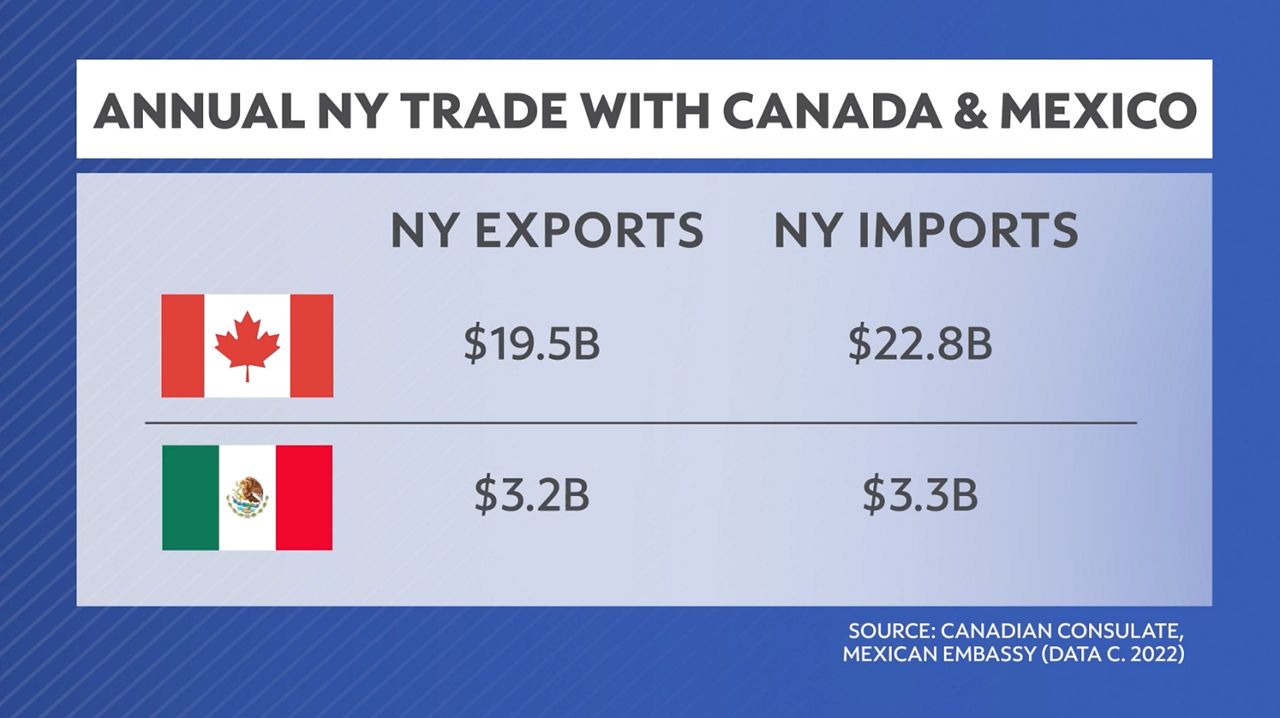President Donald Trump’s threat to slap tariffs on Mexico and Canada sparked backlash Monday from New York Democrats, who warned that upending New York’s close economic ties with Canada could harm the state.
In a day of political and diplomatic whiplash, Trump on Monday threatened and ultimately put on hold plans to impose up to 25% tariffs on goods imported from America’s two biggest trading partners.
New York itself exports $19.5 billion in goods annually to Canada and imports roughly $22.8 billion, according to data compiled by the Canadian consulate. In 2022, the state exported and imported roughly $3 billion in goods to and from Mexico, according to the Mexican Embassy.
“From Canada, we buy things like lumber. So if we want to build more affordable housing and get rent prices down, that's going to be very difficult,” Sen. Kirsten Gillibrand said during an appearance on "Mornings On 1."
Democratic leaders blasted the president as causing chaos — including at the stock market, citing the instability as an example of Trump not caring about middle class economics.
“By doing it in such a ham-handed fashion … the stock market has had an adverse reaction, and as a result, the retirement security of everyday Americans has been threatened,” House Democratic Leader Hakeem Jeffries of Brooklyn said.

Across the aisle, Republican Congresswoman Claudia Tenney, during an interview on Fox, voiced support for the president’s tariff plan, though did betray some concerns. Her district borders Canada.
“I worry a little bit about some of the carnage with some of the small businesses in upstate New York, who are going to have to react because Canada is our greatest trading partner,” she said. “But all of them agree, and support Trump. They know we need to bring our supply chains back.”
After the pause on the implementation of the tariffs was announced, some Republicans, like Rep. Mike Lawler, mocked Democrats for their warnings about the potential impact of the tariffs on consumer prices, arguing the two countries “caved” to the United States.
Though the tariffs are now on hold, even without implementation, some economic experts warn the damage may be done, with the "will he? won’t he?" dynamic of Monday potentially inspiring businesses on both sides of the border to rethink their supply chains and how they do business.
“That undercuts the certainty in commercial relations, which has been the foundation of the terrific expansion of global trade and investment and rising of income levels around the world for approximately 80 years,” Gary Hufbauer, a nonresident senior fellow at the Peterson Institute for International Economics, said.
In exchange for holding off on the tariffs, Mexico and Canada each announced commitments focused on border security.
The pause on the tariff rollout is set to last 30 days, as talks between the countries continue.



